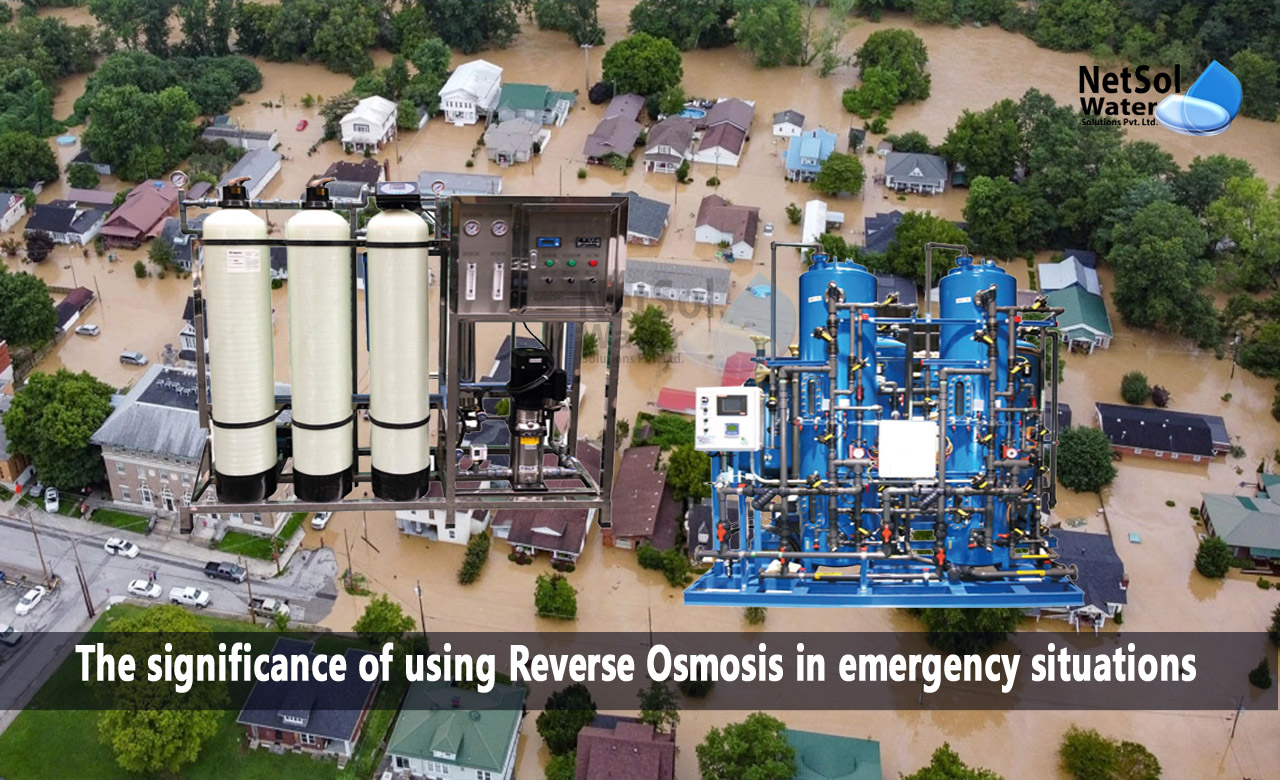Reverse Osmosis: Providing Safe Drinking Water in Emergency Situations
Access to safe drinking water is a fundamental human need, especially during emergency situations such as natural disasters or humanitarian crises. Disruptions in water supply infrastructure often lead to water contamination, posing severe health risks to affected populations. In such circumstances, the application of reverse osmosis (RO) technology plays a crucial role in providing clean and safe drinking water. This blog explores the significance of using reverse osmosis in emergency situations and how it contributes to the production of safe drinking water for affected communities.
Understanding Reverse Osmosis:
Reverse osmosis is a water purification process that employs a semi-permeable membrane to remove contaminants, impurities, and particles from water. By applying pressure, water is forced through the membrane, allowing the separation of dissolved solids, microorganisms, heavy metals, chemicals, and other pollutants. The result is high-quality, purified water that meets or exceeds drinking water standards.
Benefits of Reverse Osmosis in Emergency Situations:
1. Water Quality Assurance: Reverse osmosis is highly effective in removing a wide range of contaminants, including bacteria, viruses, protozoa, pesticides, pharmaceuticals, and chemicals. This ensures that the water produced through the process is of excellent quality and safe for consumption, protecting individuals from waterborne diseases even in challenging circumstances.
2. Rapid Deployment: Reverse osmosis systems can be designed to be portable and quickly deployed in emergency situations. Compact units can be transported to affected areas, enabling the immediate setup of water treatment facilities and ensuring a swift response to the pressing need for safe drinking water.
3. Versatility and Adaptability: Reverse osmosis systems can be tailored to various water sources, such as surface water, groundwater, or even seawater. This versatility allows for flexibility in utilizing available water sources in emergency situations, ensuring a sustainable supply of safe drinking water for affected populations.
4. Scalability: Reverse osmosis technology can be scaled up or down based on the size of the affected population and the demand for clean water. From small-scale portable units to larger systems capable of serving entire communities, the flexibility of RO technology allows for efficient adaptation to meet specific needs in emergency situations.
5. Long-Term Sustainability: Reverse osmosis systems can operate continuously for extended periods, ensuring a sustained supply of safe drinking water throughout the emergency response. This reliability reduces the dependence on external aid and promotes self-sufficiency, enabling communities to recover and rebuild in the aftermath of a disaster.
Implementing Reverse Osmosis in Emergency Response:
To effectively utilize reverse osmosis technology in emergency situations, the following considerations should be taken into account:
1. Preparedness: Emergency response organizations should maintain a stockpile of portable reverse osmosis systems and related equipment. Pre-planning and strategic positioning of these resources in disaster-prone areas can significantly reduce response time and enhance the capacity to provide safe drinking water promptly.
2. Training and Capacity Building: Local personnel and volunteers should receive appropriate training in the operation, maintenance, and troubleshooting of reverse osmosis systems. Building local capacity ensures the sustainable management and operation of these systems, empowering communities to maintain access to safe drinking water even after external aid diminishes.
3. Monitoring and Maintenance: Regular monitoring of water quality is crucial to ensure the continued efficacy of reverse osmosis systems. Implementing robust monitoring programs helps identify any potential issues and enables timely maintenance and adjustments to maintainoptimal performance and water safety.
Conclusion:
Reverse osmosis technology has revolutionized disaster relief efforts by providing a reliable and efficient method of supplying safe drinking water in emergency situations. Its portability, efficiency, flexibility, scalability, and longevity make it an invaluable tool for ensuring public health and reducing waterborne diseases. By embracing reverse osmosis technology and incorporating it into disaster response plans, humanitarian organizations can save lives and alleviate the suffering of communities affected by natural disasters. The continual advancements in reverse osmosis technology, along with collaborative efforts, will further enhance its effectiveness in safeguarding the well-being of those in need during times of crisis.
Netsol Water is Greater Noida-based leading water & wastewater treatment plant manufacturer. We are industry's most demanding company based on client review and work quality. We are known as best commercial RO plant manufacturers, industrial RO plant manufacturer, sewage treatment plant manufacturer, Water Softener Plant Manufacturers and effluent treatment plant manufacturers. Apart from this 24x7 customer support is our USP. Call on +91-9650608473, or write us at enquiry@netsolwater.com for any support, inquiry or product-purchase related query.



